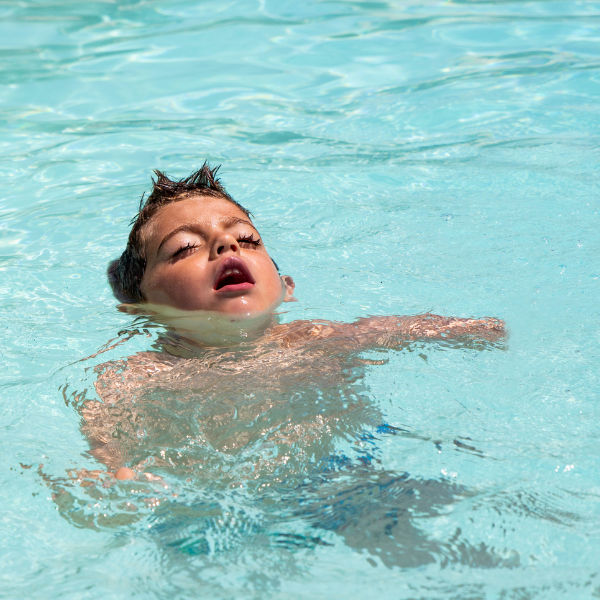June 13, 2025
Stay Safe This Summer: Avoid These 6 Common Injuries and Illnesses
Summer in New England is a great time for outdoor fun, but it can also bring more trips to the emergency room. In Nashua, Hudson, Pelham, and now in Pepperell, Massachusetts, our Immediate Care and Virtual Immediate Care teams treat a range of warm-weather issues, from sunburn to sports injuries.
Here are six of the most common summer injuries and illnesses we treat and how you can avoid them.
1. Sunburn and Heat Illness
Too much sun can cause burns, heat exhaustion, or even dangerous heatstroke. In 2023, more than 119,000 people nationwide needed ER care for heat-related illnesses, according to the CDC. At particular risk are “older persons, children and adolescents, persons with preexisting health conditions, pregnant women, outdoor workers, persons with limited access to cooling resources, and persons living in low-income communities.”
How to stay safe:
- Wear sunscreen with SPF 30 or higher. Reapply every two hours.
- Seek shade and avoid the sun from 10 a.m. to 4 p.m., when UV rays are strongest.
- Drink water throughout the day.
- Wear light-colored, loose clothing and a wide-brimmed hat.
Learn more about sunburn treatment.
Learn more about heat stroke and heat exhaustion
If you notice signs of heat exhaustion, like dizziness, nausea, or excessive sweating, rest in the shade or an air-conditioned space, elevate feet above the level of the head, remove excess clothing, and drink chilled water. If symptoms are not improving, or you are experiencing severe headache, fever, rapid pulse, no sweating, or loss of consciousness, these can indicate heat stroke. Go directly to the nearest emergency room.
For non-life-threatening illness, visit Immediate Care in Nashua, Hudson, and Pelham, NH, or Pepperell, MA.
2. Drowning and Water Accidents
From backyard pools to lakes in southern New Hampshire and Massachusetts, water safety is key. The American Red Cross reports that over  4,500 people die from drowning each year, with children at the highest risk. In fact, drowning is the number one cause of death for children aged 1-4 years.
4,500 people die from drowning each year, with children at the highest risk. In fact, drowning is the number one cause of death for children aged 1-4 years.
How to prevent drowning:
- Always watch children near the water, no exceptions.
- Use life jackets when boating or swimming in open water.
- Take a CPR class, especially if you have a pool at home.
- Add fences and self-latching gates around home pools.
Visiting the emergency room after a drowning incident is critical, even if the individual appears to have recovered. Delayed effects can be life-threatening. After a near-drowning, water can enter the lungs and cause secondary drowning or dry drowning, conditions where symptoms appear hours later.
Some symptoms may not be immediately apparent:
- Coughing
- Shortness of breath
- Chest pain
- Confusion or lethargy
- Vomiting (which may indicate aspiration or head injury)
These can escalate quickly and require medical monitoring and care at your nearest emergency department.
3. Insect Bites and Stings
Mosquitoes and ticks are active in the warm months, especially in wooded and grassy areas around Merrimack Valley and the Nashua River trails. According to the CDC, each year in the United States, approximately 50,000 individuals visit emergency departments (ED) due to tick bites. A higher incidence of tick bites is observed during the spring and early summer months, particularly in the Northeast region. Tips to protect yourself:
- Be aware of the risk in grassy, forested, or brush-covered areas
- Wear long pants, and tuck pant legs into socks
- Wear insect repellent that includes DEET, picaridin, or oil of lemon & eucalyptus
- Treat your outdoor clothing with a preventative spray such as permethrin
- Monitor pets who may carry ticks
- Check yourself and loved ones thoroughly after being outdoors, especially in ear folds, armpits, hairline, groin, and belly button
If you have a tick bite, or the tick bite causes swelling or a rash, visit one of our Immediate Care locations or schedule a Virtual Immediate Care visit.
Learn more about tick bite avoidance and treatment.
4. Sports and Bike Injuries
With more kids and teens biking and playing sports, injuries increase in the summer. According to the National Safety Council, in 2023, 3.7 million people were treated in emergency departments for injuries involving sports and recreational equipment.
Safety Council, in 2023, 3.7 million people were treated in emergency departments for injuries involving sports and recreational equipment.
How to Stay Injury-Free:
- Always wear a helmet when biking. Studies show that they “decrease your risk of head injury by 60% and brain injury by 58%”.
- Follow traffic rules and stay visible.
- Use elbow and knee pads for sports and skating.
- Stretch before playing sports to avoid pulled muscles.
Twisted ankles, sprains, or broken bones? Visit Immediate Care in Hudson, Pelham, Nashua, or Pepperell.
5. Food Poisoning
Outdoor picnics and barbecues can lead to foodborne illness if food isn’t handled properly. According to the US Public Interest Working Group, “more people in the United States got sick from contaminated food in 2024 than the year before”.
Keep food safe:
- Chill foods until you’re ready to cook or serve.
- Cook meats to the right temperature and use a meat thermometer.
- Keep raw and cooked foods separate.
- Wash hands or use sanitizer before and after handling food.
If you experience vomiting, diarrhea, or fever after eating, our team at Immediate Care team can assess your symptoms and guide you on your next steps.
6. Poison Ivy
Poison ivy can cause a very itchy, blistering rash after skin contact with the plant's oil. Here's how to avoid and manage it:
- Prevention: Follow the saying “Leaves of three, let it be” when outdoors. Wear long sleeves, pants, gloves, and closed-toe shoes when in areas with potential poison ivy exposure.
- After exposure: Immediately wash skin with soap and water. Clean your clothes, shoes, and tools to remove the oil.
- Home treatment: Use calamine lotion, over-the-counter cortisone creams, antihistamines, or oatmeal baths to ease itching. Avoid scratching to prevent infection.
If the rash spreads, worsens, or affects the face or genitals, contact Immediate Care for a virtual or walk-in visit.
Learn more about poison ivy avoidance and treatment
Local Care, Right When You Need It
Our Immediate Care offices in Nashua, Hudson, Pelham, and Pepperell are here for you seven days a week, with Virtual Immediate Care available for convenience.
Need Care Today?
Visit our website to find a walk-in location or schedule a Virtual Immediate Care appointment.
 Marissa Berry, PA-C is in practice at Immediate Care in Nashua, Pelham, and Hudson, NH.
Marissa Berry, PA-C is in practice at Immediate Care in Nashua, Pelham, and Hudson, NH.
